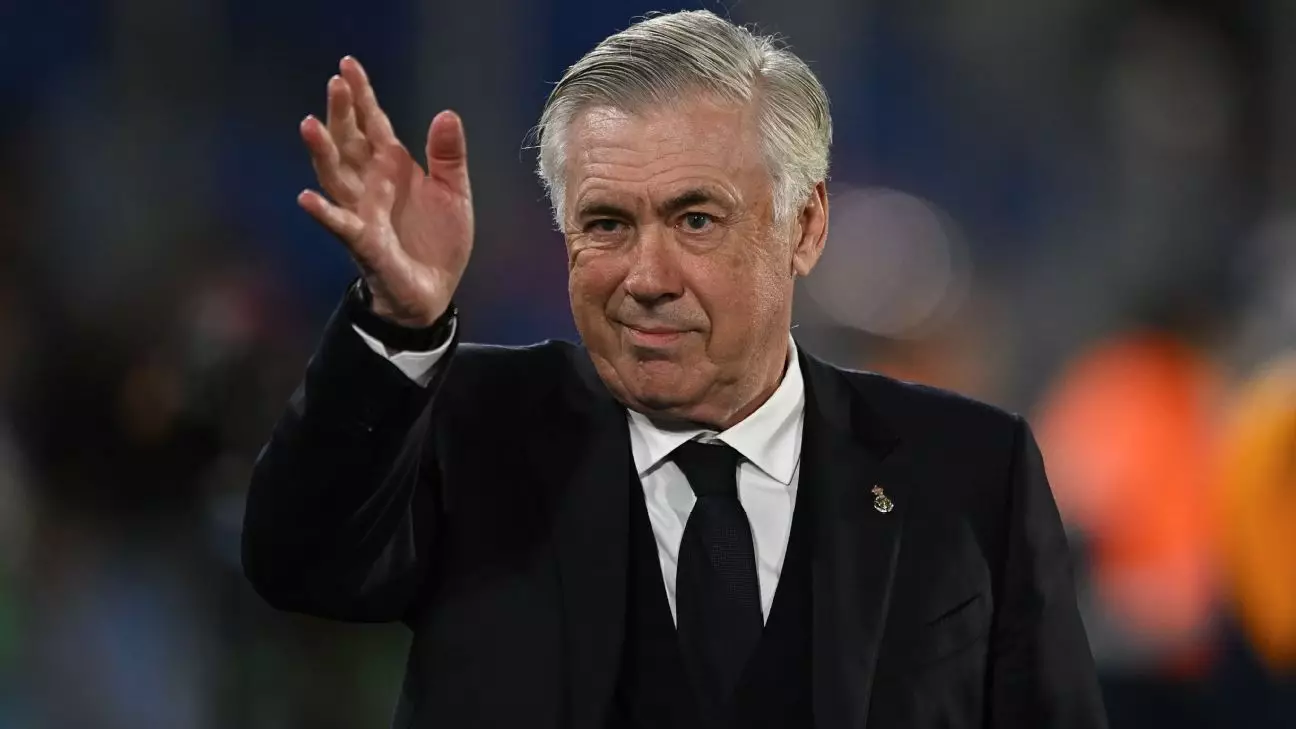In a season plagued by injuries and missed opportunities, Carlo Ancelotti stands as a resilient figure amidst the storm at Real Madrid. Speaking candidly after a challenging period, he lauded the club’s transfer strategy and future plans, emphasizing that he could not have asked for more from the signings made. Despite the recent turbulence that saw Madrid miss out on key trophies—including LaLiga, Champions League, and Copa del Rey—Ancelotti expressed no regrets over the club’s past transfer decisions. This somewhat surprising assertion prompts a deeper exploration of the intricate balance between ambition, strategy, and the harsh reality of sport.
In the shadow of their fierce rivals Barcelona’s confirmed LaLiga triumph, the emotional weight of the season effectively rests on Ancelotti’s shoulders. The sense of urgency in the club’s recruitment strategy was palpable, as their ambitions were thwarted by injuries to pivotal players like Éder Militão and Dani Carvajal. Yet, rather than wallowing in disappointment, Ancelotti’s focus quickly shifted to the future, highlighting Real Madrid’s recent signings such as Dean Huijsen and the ongoing talks for the likes of Trent Alexander-Arnold. The narrative here is not merely one of loss but of resilience, a philosophy that has long defined the spirit of Los Blancos.
A Philosophical Approach to Recruitment and Team Dynamics
While injuries certainly played a role in Madrid’s subpar performance, Ancelotti’s assertion that previous signings were adequate raises important questions regarding the balance between ambition and caution in team management. Historically, Madrid has been known for splurging on star players, hoping to rapidly elevate their standing. However, Ancelotti seems to advocate for a more measured approach, deeming their current squad performance satisfactory despite the glaring absence of their primary defensive lineup.
The coach’s perspective on recruitment reveals a broader trend in modern football, where clubs are beginning to prioritize long-term cohesion over immediate gratification. Instead of reactive signings made in haste—often filled with fanfare and high-stakes drama—Ancelotti reflects a strategic mindset which involves cultivating an environment conducive to nurturing talent and fortifying existing structures. This mentality can help equip the squad to weather storms, such as unexpected injuries or dips in form, without resorting to panic buys that rarely pay dividends.
Decentralizing Accountability: Ancelotti’s Leadership Style
One of the more intriguing aspects of Ancelotti’s commentary was his refusal to place blame solely for the team’s shortcomings. “All decisions were made in tandem with coaching staff,” he noted, highlighting a calculated and unified approach to team management. This admission signifies his belief in shared responsibility, a refreshing stance in a sport where coaches can often find themselves scapegoated amid crisis.
Instead of lamenting the failures or pointing fingers, Ancelotti noted the challenges players faced collectively, suggesting that the importance of injury was not merely about numbers on a treatment table but a crisis that rippled through the team’s dynamics. This kind of leadership fosters trust and signals to players that they are all in it together, facing the trials of sport as a united front—a refreshing contrast to the often hyper-individualistic culture prevalent in contemporary football.
Looking Ahead: A Legacy in Transition
With whispers of Ancelotti’s impending departure to coach Brazil, there is an undeniable sense of transition looming over the club. He leaves behind a framework intertwining discipline, strategy, and a shared sense of accountability, which future leaders like Xabi Alonso can build upon. The active involvement of player recruitment suggests that Madrid is also keenly aware of the need to adapt and evolve in this competitive landscape.
What remains to be seen, however, is whether these thoughtful strategies and his deep-seated philosophies will yield the anticipated results. Ancelotti’s commitment to long-term planning over instant outcomes suggests a potential renaissance for Madrid, though the road ahead is as challenging as it has ever been. Football’s unforgiving nature mandates resilience, and with Ancelotti at the helm—at least for a time—there is a palpable sense of belief that the tides of fortune may yet turn for the storied club.

